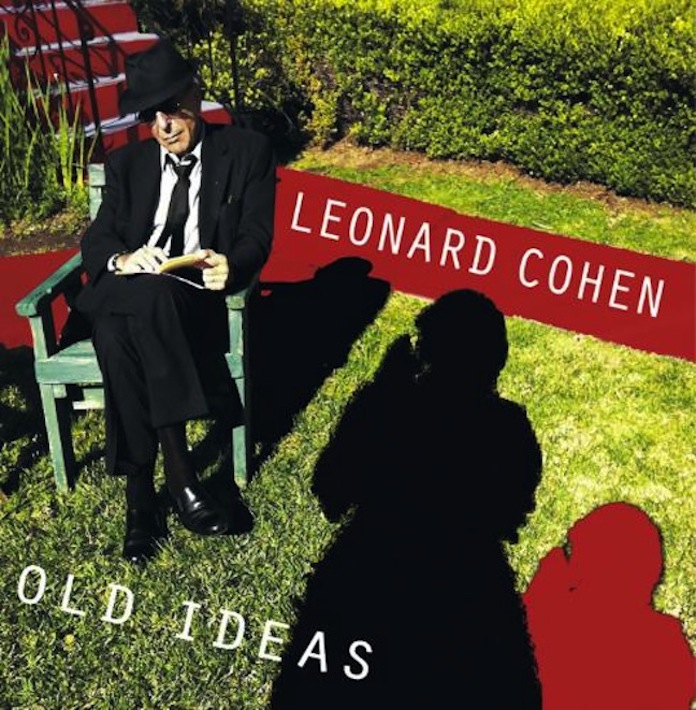Based on the title of its lead single (“Going Home”), you might expect Old Ideas to be a very somber, reflective record –- one of the sorts that Johnny Cash was recording in his final years, when he embraced the fact that he was nearing the end of his life and created some of his most frail, heartbreaking work, literally singing from his deathbed at one point. But there’s still cynicism seeping through Cohen’s disaffected voice, which, though it never lent itself to traditional vocals, is now more than ever a soft, hoarse whisper, at times seeming to lose itself beneath the crest of the rhythm section.
As wonderful a lyricist as he may be, Cohen’s records over the course of the past two decades or so have suffered somewhat (some might say largely) due to garish production qualities — awkwardly loud, outdated synth keyboards; an over-reliance on misplaced, cheesy backing vocals, etc. None of this detracted from the strength of his lyricism, which has never wavered; he’s one of our finest poets — but the music itself hasn’t been uniformly excellent since perhaps the late ‘70s. And for an artist who has only released 12 studio albums, it means most fans find it easier to agree upon the highlights of his discography, unlike, say, a Dylan, Young, Springsteen or Waits whose quality – and style – of songwriting has fluctuated considerably over the years.
It’s nice to report, then, that Old Ideas is probably Cohen’s finest album since 1988’s I’m Your Man, which is where Cohen’s love for synth effects was perhaps at its most tolerable. Reading a review of Old Ideas on a UK music site, a journalist – whose name I either will not reveal or cannot recall – complained that Cohen never writes memorable melodies, and that the record suffers for it. I disagree. Sure, Cohen isn’t going to be climbing up the pop single charts any time soon, but this batch of songs contains some of his better melodies in many years. I’d say half are memorable, and half simply fit in stride with the rest of the album; you might not immediately go back to them, but thematically and musically they just feel appropriate.
“Going Home” was a great choice for a first single: it’s strangely, beautifully haunting. “Amen,” not unlike “Hallelujah,” appropriates a religious connotation but contains some incredibly dark, cynical lines (“Tell me again when I’m clean and I’m sober / Tell me again when I’ve seen through the horror,” he croaks). The warm orchestration and church organs of “Show Me the Place” support one of the sadder songs I’ve heard lately. On “Darkness,” which musically actually sounds very much like recent Dylan, he sings “The present’s not so pleasant / Just a lot of things to do / I thought the past would last me / But the darkness got that too.” A few verses later he follows this with: “I don’t smoke no cigarette / I don’t drink no alcohol / I ain’t had no loving yet / But that’s always been your call / And nothing but the darkness / Makes any sense to me at all.” There’s bitterness behind his delivery of these lyrics that makes them seem incredibly spiteful rather than sad. In other words: classic Cohen, only maybe just a little darker than usual.
Sparked by something of a pop cultural resurgence in recent years – the documentary and buzzed-about live shows certainly helped – Leonard Cohen is at his most relevant, as a musician, in many years. I began this review by stating that this isn’t the autumnal record its title may imply, and that is partially true: Cohen is certainly aware of his mortality here, but approaches it with his typically sardonic wit. Old Ideas is not the man’s latter-day masterpiece but its title is as bluntly honest as any you’ll see this year, in more ways than one.

